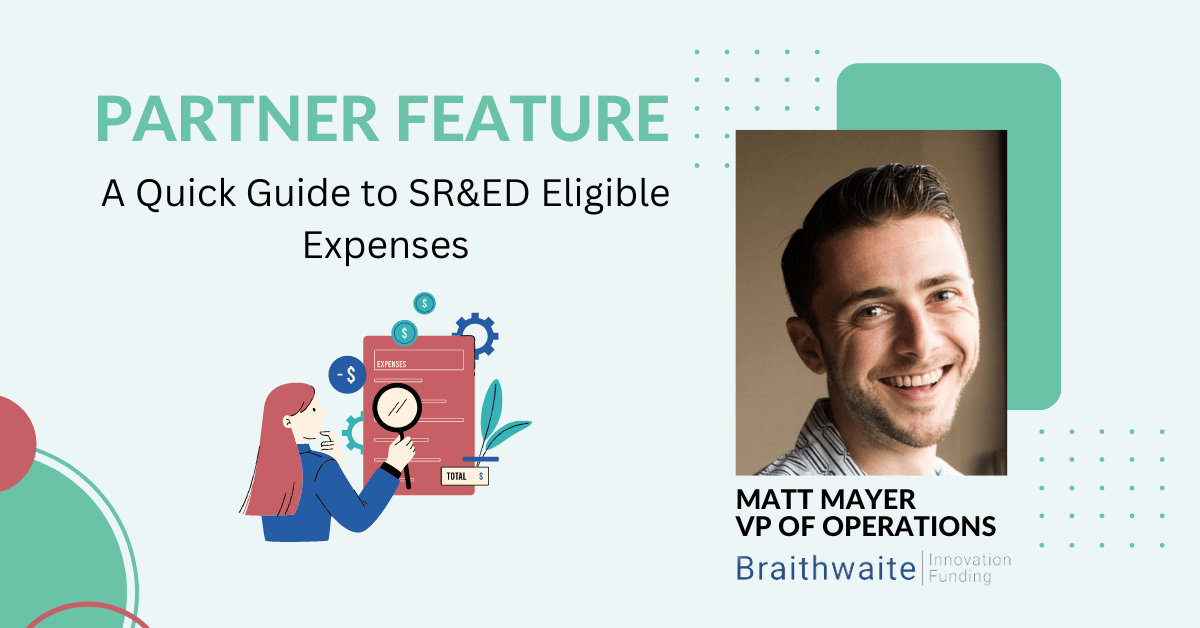Reading time: 4 minutes
There are hundreds of government and private grants available to small companies and startups in Canada. These financing options assist ventures without entrepreneurs needing to give up equity or take out high-interest loans. Companies can use these grants to hire and train employees, improve R&D, advertise, purchase equipment, etc. However, grants sometimes come with complicated and sometimes confusing processes and qualifying rules. This bureaucracy is particularly cumbersome when considering the numerous applications some companies need to complete to secure funding.
Grants come in a variety of shapes and sizes. Some funding sources provide businesses with non-repayable grants, which implies the money is allocated to the companys’ requirements and does not demand repayment.
Other funding sources offer conditionally repayable grants, which indicates that the company must fully or partially repay the money on the occurrence of certain events or conditions defined in the agreement’s terms. Also, some funding programs additionally provide a matching contribution to the business, meaning that the money is paid to you if you make a matching investment to your own business.
Pre-applications steps
Even though there are hundreds of grant programs, they all come from different funding organizations in Canada. Some are specific to an industry, a province, or even a need. As a result, before beginning a search for grants, it is critical to clarify the funding objectives and the startup’s specific needs. For example, the Canadian Institutes of Health Research (CIHR) supports bright researchers and projects and invests more than $1 billion in health research each year. There’s also the IRAP (Industrial Research Assistance Program), which offers up to $150,000 in funding to accelerate the R&D initiatives of all small and medium-sized businesses in Canada. Again, government grants can come from the federal, provincial, or local levels, so startups must carefully conduct their research when preparing for an application.
Furthermore, each funding program has its own set of deadlines, and businesses should be aware and prepare ahead of time because the application process can be lengthy.
The official Government of Canadia website is a helpful resource and provides a directory of available grants. Businesses can filter the directory by sector, geography, and other criteria. It’s a great tool for startups to begin their grant research.
Government grants
Applying for government grants has many advantages, including:
- Free money!
- Equity investors can leverage their investment with matching government grants.
- More likely to fund the entire project and indirect expenditures.
- Counselling is often readily available throughout concept creation and proposal design.
Nevertheless, government grants can also mean:
- A large number of applicants can reduce the probability of successfully receiving the grant.
- Have long proposal requirements and extensive application, administration, and compliance processes.
- Occasionally, institutional cost-sharing is required.
- Reviewers may favour more experienced, established applicants.
A few examples of government grants are the Accessible Technology Program (ATP), the Canada Digital Adoption Program (CDAP), the Canada Media Fund, and the Canadian Agricultural Strategic Priorities Program (CASPP).
Private sector grants
Because of the following factors, it may be quicker and easier to obtain a grant from private sector institutions:
- Fewer restrictions than government grants.
- Usually fewer candidates.
- Private providers may be more likely to collaborate with cutting-edge products and services to focus on emerging difficulties and new needs.
However, it also encompasses the following:
- Grants are frequently smaller and less likely to cover all project costs.
- Less stable: Areas of interest shift quickly, institutions may close in the interval, revise their budgets, etc. As a result, predicting private grant availability for startups can be challenging.
A variety of institutions offer private grants, such as the Honda Canada Foundation, the Mastercard Foundation, or the Canada Foundation for Innovation.
It is vital to remember that most government grants are intended to assist and encourage startups in their growth; government funds are not intended to be used for profit. This is often not the case when it comes to private-sector grants.
Completing the application
Each government grant program is distinct, with its own set of rules and requirements that must be met before applying. Most grant programs exist for very specific reasons or objectives; therefore, understanding those reasons or goals is the first step.
To ensure that a company’s government grant application is successful, they must ensure that their operational and financial documentation is current and in the required format indicated in the application. All government grant programs require these documents as they serve as the foundation for assessment. Furthermore, startup owners should be aware that most funding programs have tight requirements. Any mistakes could result in a cancelled or denied application.
Applying for government grants in Canada can be time-consuming because each opportunity has its own criteria. Companies can hire professionals such as grant writers or consultants to reduce the time and effort spent on applications. These experts can assist them in meeting tight deadlines, improving the quality of their applications, and increasing their chances of receiving a grant.
Considering that many grant programs have tight submission periods, startups must constantly keep an eye out for relevant opportunities.
Receiving the grant
Because there are so many companies applying for government grants in Canada, it can take a long time for authorities to review each one and ensure that they fit the eligibility standards. Also, the length of time it takes for a grant application to be approved is determined by the project extent and complexity and the Canadian government’s financing scheme characteristics.
Some grants provide applicants with a response within 90 days of applying, while others can take several months for a decision. As a result, simultaneously applying for multiple grants is an excellent way for a company to increase their chances of securing timely funds.
Using Venbridge Grant Financing for immediate cash flow
In light of all of the factors above, applying for a grant in Canada can be highly challenging and time-consuming. Venbridge’s grant financing can streamline access to the capital, which can take months or even years from grant approval to final disbursement.
By combining cutting-edge technology, extensive industry knowledge, and a top-notch team, Venbridge has helped many companies grow their businesses with founder-friendly non-dilutive financing.
Click here to get in touch with the Venbridge team and see if your company is a fit for Venbridge grant financing.




